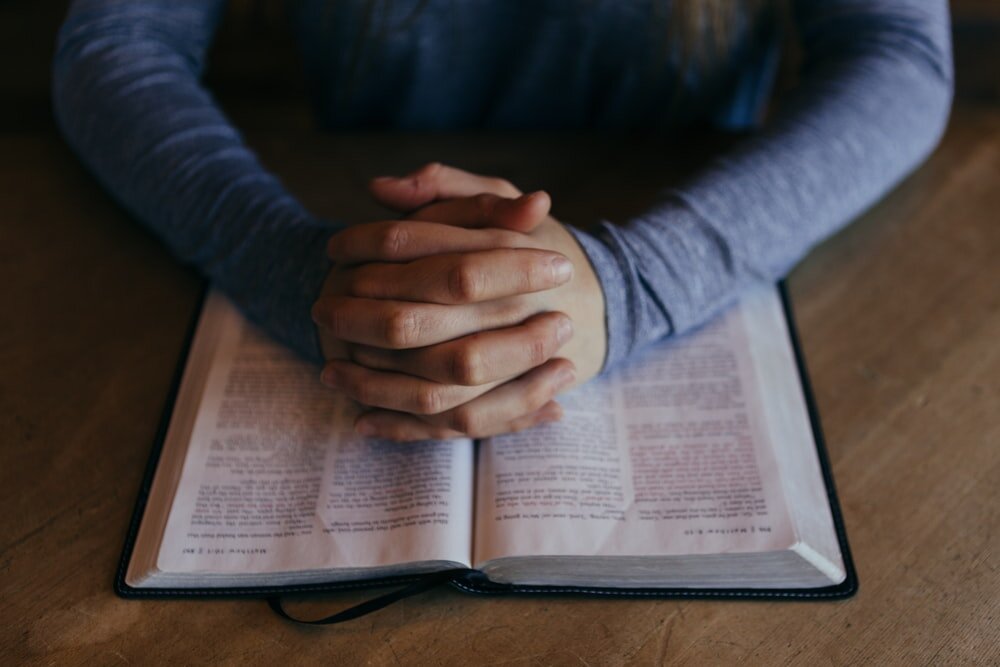I’m always surprised by the parallels between our physical and spiritual lives.
With strength training, a workout often agrees with our bodies while we are doing it, but then later that day, or the next day, we realize you did too much or that a particular lift or movement doesn’t agree with our body. That realization and reflection on what we did well and what might need to change moving forward is very important for growth and sustainability in physical training.
In the same way, reflection on how we are doing in our daily relationship with God and with each other is something that requires reflection for growth and sustainability. As it turns out, a couple friends in a discipleship program which I’m a part of shared the role of the examen prayer in reflecting on their daily lives. I wanted to learn more so I’ve been exploring the Ignatius Examen that is part of his Spiritual Exercises (#43) and I have enthusiastically incorporated this method of prayer into my life.
Generally speaking, the Ignatius Examen has five parts which include: gratitude for the blessings of the day, petitioning God for his grace and strength to see where we can do better, reviewing the day through spiritual eyes, asking for forgivingness where needed, and planning for the next day. Examen prayer time typically begins and closes with prayers of your choice. From what I’ve learned, the examen is meant to be brief and simple, but it can often lead us into the deep waters of discernment and growing in love of God and neighbor.
St. Ignatius of Loyola
There is so much to the examen, and I am new to it, but there are two books that I found helpful: Reimagining the Ignition Examen by Mark Thibodeaux, SJ and The Examen Prayer, Ignatian Wisdom for Our Lives Today by Timothy M. Gallager, O.M.V.
As someone who prays mostly in morning, I felt a void in my spiritual life not praying in the evening. Praying an evening examen has become a way to review the day with God to see where he was working and where I was and wasn’t cooperating with his grace. I also sometimes do a mini examen at lunch time or after key events of the day. For me, it’s been 5-15 minutes most days and I look forward to it.
There are times of course when I’ve had a ‘bad day’ where things didn’t go well and I didn’t respond with love — and it can be easy to decide to avoid the examen on those days, so as to not face my failings, but what I’ve found most interesting is that on those ‘bad’ days there are so many blessings, so much to be grateful for that I am actually lifted up by the examen prayer rather than feeling discouraged by my weak responses to the events of the day. Those days often increase my resolve to call on God more the next day (as we know, going it alone never works.)
At the essence of the examen is the daily practice of discernment in our lives. Where is God? Where am I? Am I seeking him, thanking him, responding to his grace throughout the day? Am I allowing him to work through me to others? Where can I do better? What needs to change in my life? How can I see God more fully in my daily adventure with him? What virtues and habits can I grow in to live the next day even better?
I think that is the key point — that through this practice of honestly reviewing the events of the day with God, we begin to respond with more faith, hope, love, wisdom and understanding the next day and the next day — on this journey toward sainthood.
It has been an interesting journey so far. It takes some real effort to make the examen a daily habit, and I can see the challenge of making it sustainable over years, but I also see how active God is in every minute of the day, the gift of his grace that is being poured out, and how he desires that we be more attentive vessels. From Ephesians 2:8, “ For by grace you have been saved through faith, and this is not from you, it is the gift of God.”



































